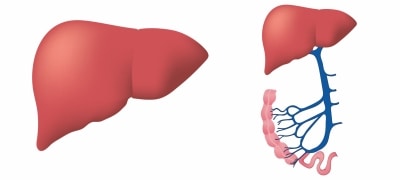London, Nov 5 : In a significant study, researchers have found that dietary supplement known to increase the growth of good bacteria in the gut, might also help in the treatment of fatty liver.
In a study, published in the journal Nutrients, the researchers were successful in partially preventing fatty liver disease in rats. In addition, preliminary results from a human study seem promising.
For the rat example, they fed dietary supplement to the rodents. Simultaneously with the increased abundance of the bacteria, the liver fat content decreased significantly.
“Fatty liver disease is an important metabolic disease, which without treatment can develop into cirrhosis or even hepatocellular carcinoma, that is, hepatic cancer,” said the researchers from Jyvaskyla University in Finland.
The research team were able to treat the fatty liver of mice by administering Faecalibacterium prausnitzii, a member of the gut microbiota with known anti-inflammatory properties.
In the most recent study, the research team fed rats with a dietary supplement that partly prevented the fatty liver of rats.
“Unfortunately, this type of health-beneficial gut microbes cannot necessarily be sold at the pharmacies for human use. So we wanted to find out whether we can increase its natural abundance in the gut with prebiotic fibre,” said study author Satu Pekkala.
A prebiotic is defined as a selectively fermented dietary component that cannot be digested in the gut but serves as food for the good gut microbes, such as lactobacilli, thereby conferring beneficial effects for the health of the host.
The research team first found that the above-mentioned Faecalibacterium prausnitzii was able to use prebiotic Xylo-oligosaccharides as food, which increased its growth.
XOS is a dietary supplement that can be found in natural products shops and online stores.
After these positive results, the research team performed a dietary intervention in rats, in which fatty liver was induced in rats and at the same time they were fed with a diet supplemented with XOS for 12 weeks.
The results of the research showed that XOS increased the growth of the health-beneficial bacterium, and at the same time, significantly decreased the liver fat content of the rats.
“The most important contributing factors to reduced liver fat were improved hepatic fat and glucose metabolism,” the authors noted.
Disclaimer: This story is auto-generated from IANS service.

